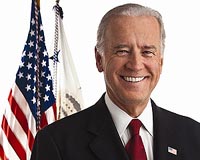| . |  |
. |
Baghdad (UPI) Jul 7, 2010 Lawmaker Qutiebya Ibrahim al-Juburi, a stalwart of the al-Iraqiya bloc led by former Prime Minister Iyad Allawi, was lucky. He survived an assassination attempt by four attackers who raked his motorcade with gunfire Tuesday near Tikrit, Saddam Hussein's hometown north of Baghdad. Others weren't as fortunate. Dozens of people associated with Allawi's cross-sectarian bloc have been killed over the last four months as al-Iraqiya struggles with its main rival, incumbent Prime Minister Nouri al-Maliki's Iranian-backed Shiite alliance, to form a new government. The two coalitions finished neck-and-neck in the landmark March 7 parliamentary election, al-Iraqiya with 91 seats, the highest number won by any party, and al-Maliki's State of Law bloc with 89. But neither had enough seats in the 325-member parliament to form a new government. Ever since, they've been struggling to form alliances with other parties that would give them the numbers and the assassinations have intensified. On June 1, the Supreme Court ratified the election result, confirming al-Iraqiya's slender lead. But that didn't stop the political killings, which appear to be extremely one-sided. These have taken place amid the wider violence mounted by al-Qaida in Iraq and other insurgents seeking to destabilize the violence-torn country as U.S. forces withdraw. Allawi, a secular Shiite who was interim prime minister in 2004-05 when the Americans were in overall control, has frequently complained that his bloc was being systematically liquidated. His bloc was supported by a large number of dissatisfied minority Sunnis who were the backbone of Saddam's Baathist regime. Their vote gave al-Iraqiya its razor-thin lead at the polls. The Sunnis have been particularly targeted in the wave of politically motivated assassinations. Allawi says they have been subject to arrest by Maliki's security services and eliminated from political life under a postwar de-Baathification process. Maliki's government has denied any involvement in the campaign of violence and lays the blame on al-Qaida. Al-Iraqiya, officials insist, has been exploiting the killings to gain political advantage. To be sure, it is sometime impossible to determine which groups are to blame for the killings that are taking place all over Iraq. But U.S. officials and political insiders believe that people linked to al-Iraqiya have been deliberately targeted because of their political affiliation. Maliki, a strongman in the classic Arab mold, made a point of securing control of Iraq's security and intelligence services after he took office in 2005. U.S. officials say he used them to eliminate political rivals, Shiites as well as Sunnis. Allawi, a CIA asset who sought to topple Saddam in the 1990s, is a hard man, too. But he is pro-American and anti-Iranian. His followers believe that Iran's intelligence services, which actively aided insurgent groups fighting the Americans and their Iraqi allies after 2003, are masterminding the current wave of assassinations or at least have a hand in them. Tehran has made it clear that it favors a Shiite-dominated government, such as one headed by Maliki, a longtime Iranian ally who was a member of the secretive ad-Dawa Islamist party that plotted against Saddam's regime. The Iranians, who fought Saddam in the 1980s, want to control Iraq, their historical enemy, and if necessary keep it in ferment while it confronts the United States. If the dispossessed Sunnis don't get to be part of a new government under Allawi, Iraq faces years of deadly convulsions that could signal even greater Iranian encroachment. The U.S. State Department noted in May it was concerned about Iranian attempts to influence Iraq's political process. Al-Juburi's clan, one of the most powerful in Iraq, has been badly hit by the assassins. Faris Jassim al-Juburi, a former pilot in Saddam's air force and a failed candidate in the March polling, was gunned down near the northern city of Mosul June 5. Two weeks earlier, Bashar Mohammed Hamid al-Agaidi, a Sunni mill owner who won a parliamentary seat for al-Iraqiya, was killed in Mosul. That's one of Iraq's most violent cities and an insurgent flash point and it's possible he was killed by insurgents, who hunt down Sunnis who cooperated with the Americans or the political process. Still, political leaders in Mosul say al-Agaidi's slaying was part of the power struggle over the government. He was the first of the new lawmakers to be killed following the election.
Share This Article With Planet Earth
Related Links Iraq: The first technology war of the 21st century
 Biden pushes for Iraq government breakthrough
Biden pushes for Iraq government breakthroughBaghdad (AFP) July 5, 2010 US Vice President Joe Biden made a final bid on Monday to persuade Iraq's squabbling leaders to end their differences and form a government, four months after elections ushered in political deadlock. Biden, on the third and final day of a visit to Baghdad, held talks with the war-torn country's President Jalal Talabani, after urging all politicians to "honour the trust" shown in them by vote ... read more |
|
| The content herein, unless otherwise known to be public domain, are Copyright 1995-2010 - SpaceDaily. AFP and UPI Wire Stories are copyright Agence France-Presse and United Press International. ESA Portal Reports are copyright European Space Agency. All NASA sourced material is public domain. Additional copyrights may apply in whole or part to other bona fide parties. Advertising does not imply endorsement,agreement or approval of any opinions, statements or information provided by SpaceDaily on any Web page published or hosted by SpaceDaily. Privacy Statement |